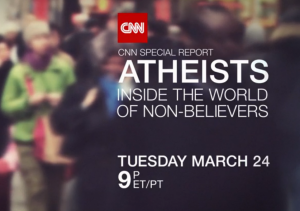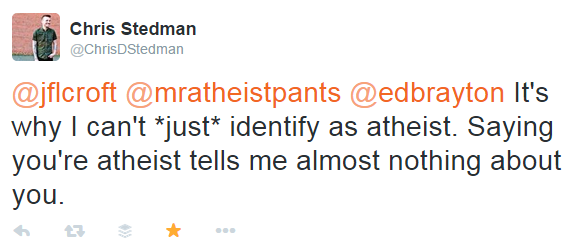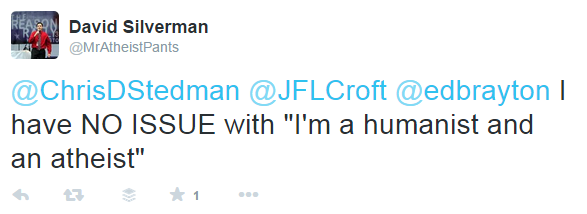Why Humanists Are Still Misunderstood: CNN’s Documentary on Atheists in America

Last Tuesday’s CNN special was a forty-five minute feature on atheists in America that advertised itself as an exposé of “how the other side lives” (they referred to atheists by “the ‘A’ word”). Yet disappointingly, but expectedly, the program did not go in any real depth about the complexity or diversity of the nonbeliever movement, lumping humanists with atheists, freethinkers, and skeptics in a narrative that portrayed all labels to be synonymous.
The documentary focused primarily on atheists’ life experiences in the Bible Belt, highlighting attempts to build community. Richard Dawkins, renowned evolutionary biologist and “New Atheist,” and Dave Silverman, the “firebrand” president of American Atheists, were seemingly portrayed as the two spokespeople of the nontheistic community as a whole.
Dave Silverman’s interview very early on in the documentary incited reactions from the nontheistic online community, with prominent skeptic and freethought bloggers responding critically. Chris Stedman (@chrisdstedman), executive director of the Yale Humanist Community, instigated a Twitter argument with Silverman (@mratheistpants) because of the following exchange:
Kyra Phillips (CNN): “I’ve interviewed men and women, they say, ‘I’m a humanist, I’m a freethinker, I’m a skeptic.’ So many people won’t say, ‘I’m an atheist.’ Is it all the same thing? Are these just softer terms for ‘I’m an atheist?’”
Silverman: “Yes. These are atheists who are afraid to use the word. And what are they doing? They’re lying.”


Silverman clearly noted that his intention was to emphasize that closeted atheists who are not jeopardized by outwardly stating their feelings should come clean about being atheists to encourage others to feel comfortable doing so.
It’s true that humanists, freethinkers, skeptics, anti-theists, and so forth are not identical to atheism. In fact, as Richard Dawkins said, “[Atheism] just means a certain philosophical position—that you don’t believe in a supernatural creator,” whereas humanism takes the positive position that humans are capable of moral judgment sans a higher power or ancient book, and they should actively seek to be good to each other as inherent in our nature and universal desire for human progress.
However, CNN certainly was to blame for that lack of clarification, not Dave Silverman, who freely admitted that he “would definitely have made different decisions [regarding the documentary] and added a more diverse line-up,” and self-aware enough to know that he does not speak on behalf of the movement as a whole. Kyra Phillips asked a leading question and edited the documentary to present her view (as well as the CNN brand and style of “news” meant to pander condescendingly to its viewers) of atheism and of a movement that actually prefers to remain an open tent for anyone who is willing to try and discover truths through logic and reason.
Harvard Humanist Chaplain Greg Epstein, who was also featured in the documentary, was asked a similar question by Phillips to which he responded, saying broadly that it’s all one community. And at the end of the day, we are all simply human, and we should remember that. We should celebrate that. Labels have affected us to the point where Republicans will feel more comfortable sending a patronizing letter to a foreign government rather than deal with Democrats, and to the point in which Americans still strongly identify with being American as second only after family and just before religion.
The real question is: How strongly do you identify with being human? Of the human race? Of being a Homo sapien citizen of the planet Earth? How much do you care to help all of humanity progress? I hope, as Dawkins does, that the time will come when we don’t need the word atheist, or humanist, or any of the other words. But for now, we will continue to question the meaning of being human and endeavor to be better at it. It’s an idea beyond religion, beyond the god-no god debate. That’s humanism.
